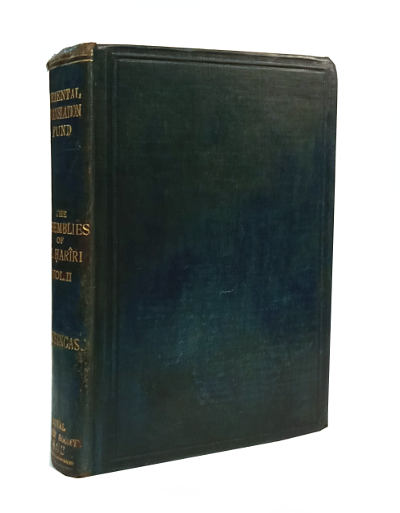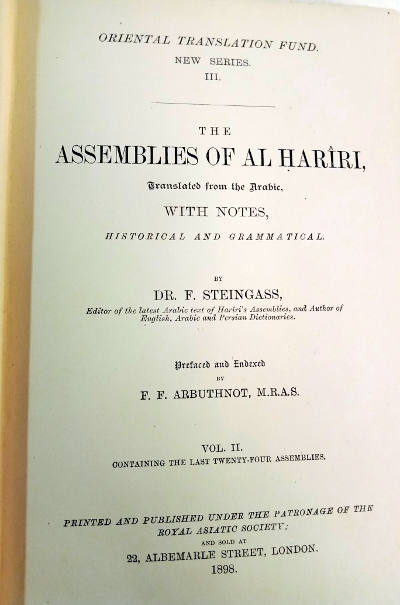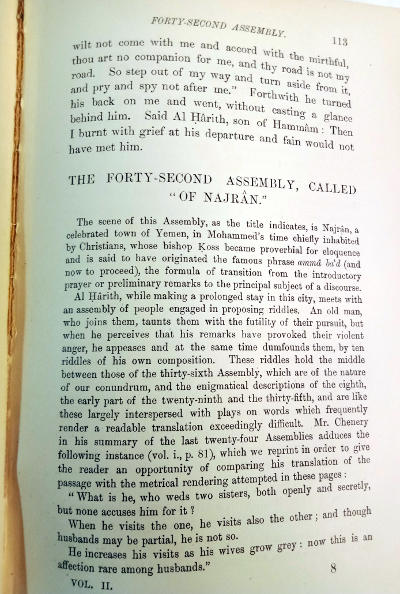About the Assemblies (from Wikipedia):
The Assemblies of Hariri is a collection of some 50 stories written in the Maqama style, a mix of verse and literary prose. It is a virtuosic display of saj’, consisting of 50 anecdotes written in stylized prose, which was once memorized by heart by scholars, and Mulhat al-i’rab fi al-nawh, an extensive poem on grammar.
The 50 anecdotes are related by Abu Zayd to Al-Harith who is understood to be the work’s narrator. Abu Zayd is a wanderer and confidence trickster who is able to survive using his wiles and his eloquence. The work makes extensive use of language as spoken by desert Arabs – its idioms, proverbs and subtle expressions.
Al-Hariri’s Maqamat made extensive use of literary artifice. In one maqama, known as “the reversal” sentences can be read in reverse, giving each passage an opposite meaning. In the 26th maqama, known as the “Spotted”, the protagonist composes a “spotted letter” in which a character with a dot is alternated with a character without a dot. In a passage that al-Hariri added to a version of his Maqamat, he lists a variety of techniques:
Language, serious and light, jewells of eloquence, verses from the Q’ran, choice metaphors, Arab proverbs, grammatical riddles, double meanings of words, discourses, orations and entertaining jests.
Like most books of the period, maqamat were intended to be read aloud before a large gathering. Oral retellings of maqamat were often improvised, however, al-Hariri who composed his stories in private, intended them as finished works that he expected to be recited without embellishment.
About Al Hariri (from Wikipedia):
Abū Muhammad al-Qāsim ibn Alī ibn Muhammad ibn Uthmān al-Harīrī (Arabic: أبو محمد القاسم بن علي بن محمد بن عثمان الحريري), popularly known as al-Hariri of Basra (1054– 9 September 1122) was an Arab poet, scholar of the Arabic language and a high government official of the Seljuk Empire.
Al-Hariri was born 446 AH (1030) and died in his native city of Basra in AH 516 (1122). Although his place of birth is uncertain, scholars suggest that he was probably born in Mashan (near Basra), where his family had a palm tree plantation, and only resided in Basra after the age of maturity. The street where he died, Banu Haaran, was a place where Bedouins were known to have settled and was a centre of Basra’s silk manufacturing industry. His name, al-Hariri, probably reflects his residence (hariri = silk manufacturer or silk merchant).




